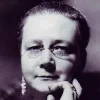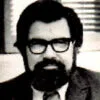If you reside in a state where you attain your legal majority while still in your teens, pretend that you don’t. There isn’t an adult alive who would want to be contractually bound by a decision he came to at the age of nineteen.
Quotations about:
competence
Note not all quotations have been tagged, so Search may find additional quotes on this topic.
To know one’s own limitations is the hallmark of competence.
Dorothy Sayers (1893-1957) English author, translator
Thrones, Dominations, ch. 5 (1998) [with Jill Paton Walsh]
(Source)
Walsh completed the novel left unfinished at Sayers' death.
To go from being a competent writer to being a great writer, I think you have to risk being — or risk being seen as — a bad writer. Competence is deadly because it prevents the writer risking the humiliation that they will need to risk before they pass beyond competence. To write competently is to do a few magic tricks for friends and family; to write well is to run away to join the circus. Your friends and family will love your tricks, because they love you. But try busking those tricks on the street. Try busking them alongside a magician who has been doing it for 10 years, earning their living. When they are watching a magician, people don’t want to say, “Well done.” They want to say, “Wow.”
Toby Litt (b. 1968) English writer and academic
“What makes bad writing bad?” The Guardian (20 May 2016)
(Source)
Love what you do. Get good at it. Competence is a rare commodity in this day and age. And let the chips fall where they may.
Jon Stewart (b. 1962) American satirist, comedian, and television host. [b. Jonathan Stuart Leibowitz]
Commencement Address, College of William & Mary (2004-05-20)
(Source)
Competence, like truth, beauty and contact lenses, is in the eye of the beholder.
Lawrence J. Peter (1919-1990) American educator, management theorist
The Peter Principle (1969)
See Richard Cumberland.
An education isn’t how much you have committed to memory, or even how much you know. It’s being able to differentiate between what you do know and what you don’t. It’s knowing where to go to find out what you need to know, and it’s knowing how to use the information once you get it.
William Feather (1889-1981) American publisher, author
(Attributed)
The original source for this has not been found. It is quoted (without source) in Carman Fish, "The Safety Valve" column, National Safety News (1960-01). Prior to that, it is also quoted in Telephony Magazine, Vol. 150 (1956), p. 23 (but that article itself notes it is quoting from an issue of Copperweld Magazine).
The first two sentences are often credited to Anatole France, but this seems to be a fairly recent (1990s?) misattribution.
Another variant (attributed to France, uncited; e.g.): "True education is the ability to discern the difference between what you do know and what you don't."






